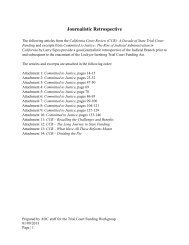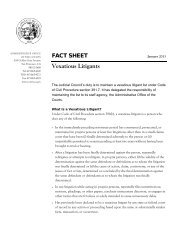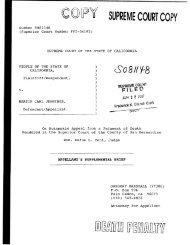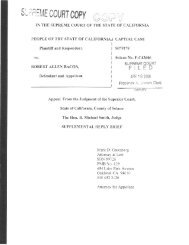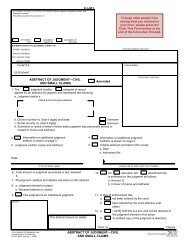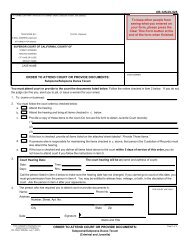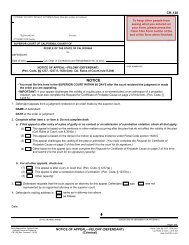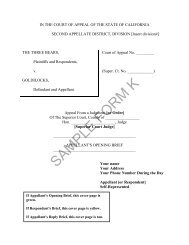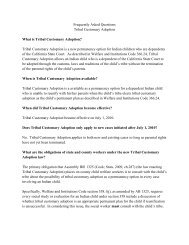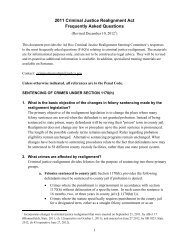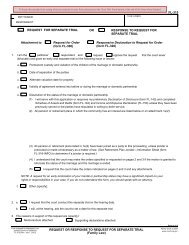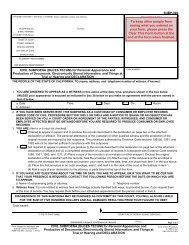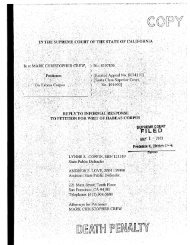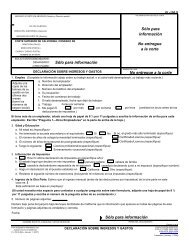Appellant, William Satele, Reply Brief - California Courts - State of ...
Appellant, William Satele, Reply Brief - California Courts - State of ...
Appellant, William Satele, Reply Brief - California Courts - State of ...
You also want an ePaper? Increase the reach of your titles
YUMPU automatically turns print PDFs into web optimized ePapers that Google loves.
doubt that the defendant, with the intent to kill, aided and abetted any actor in the<br />
commission <strong>of</strong> the murder in the first degree, or with reckless indifference to<br />
human life and as a major participant, aided and abetted the crime. Thus, under<br />
this instruction the jury could find the special circumstance to be true if it found<br />
merely reckless indifference to life, when in fact it was required to find an intent to<br />
kill.<br />
Because the prosecutor expressly acknowledged the fact that he had not<br />
proven who the actual killer was, it is not possible that the jury could have made<br />
the finding that appellant was the actual killer. Therefore, this instruction allowed<br />
the jury to convict on two theories, one <strong>of</strong> which was improper and therefore<br />
violative <strong>of</strong>the principles explained in People v. Guiton (1993) 4 Ca1.4th 1116 and<br />
subsequent cases. (See AOB at pp. 90-93.) There is nothing in the verdict form<br />
which would make it possible to determine which theory the jury relied upon, and<br />
reversal is therefore compelled.<br />
B. The Doctrine OfInvited Error Does Not Bar This Claim<br />
Respondent argues that the doctrine <strong>of</strong> invited error prohibits appellants<br />
from raising this issue. Respondent states, "<strong>Appellant</strong>s never requested that<br />
CALJIC No. 8.80.1 be redacted. It was given at their request. (13RT 3045; 37CT<br />
10778)" (RB at p. 177.) Respondent asserts that because appellants did not raise<br />
the claims based on the Fifth, Sixth, Eighth, and Fourteenth Amendments below,<br />
appellants are prohibited from arguing these constitutional errors at this stage.<br />
(RB at p. 177.)<br />
Neither <strong>of</strong>these contentions have merit.<br />
First, as noted previously (Ante, at pp. 29-31.), in order for the doctrine <strong>of</strong><br />
invited error to apply it must be clear that counsel acted for tactical reasons and<br />
not out <strong>of</strong> ignorance or mistake. The duty to properly instruct the jury belongs to<br />
the court, not to defense counsel, and counsel's mere acquiescence or failure to<br />
object to an incorrect instruction does not trigger the invited error doctrine. (See<br />
54



